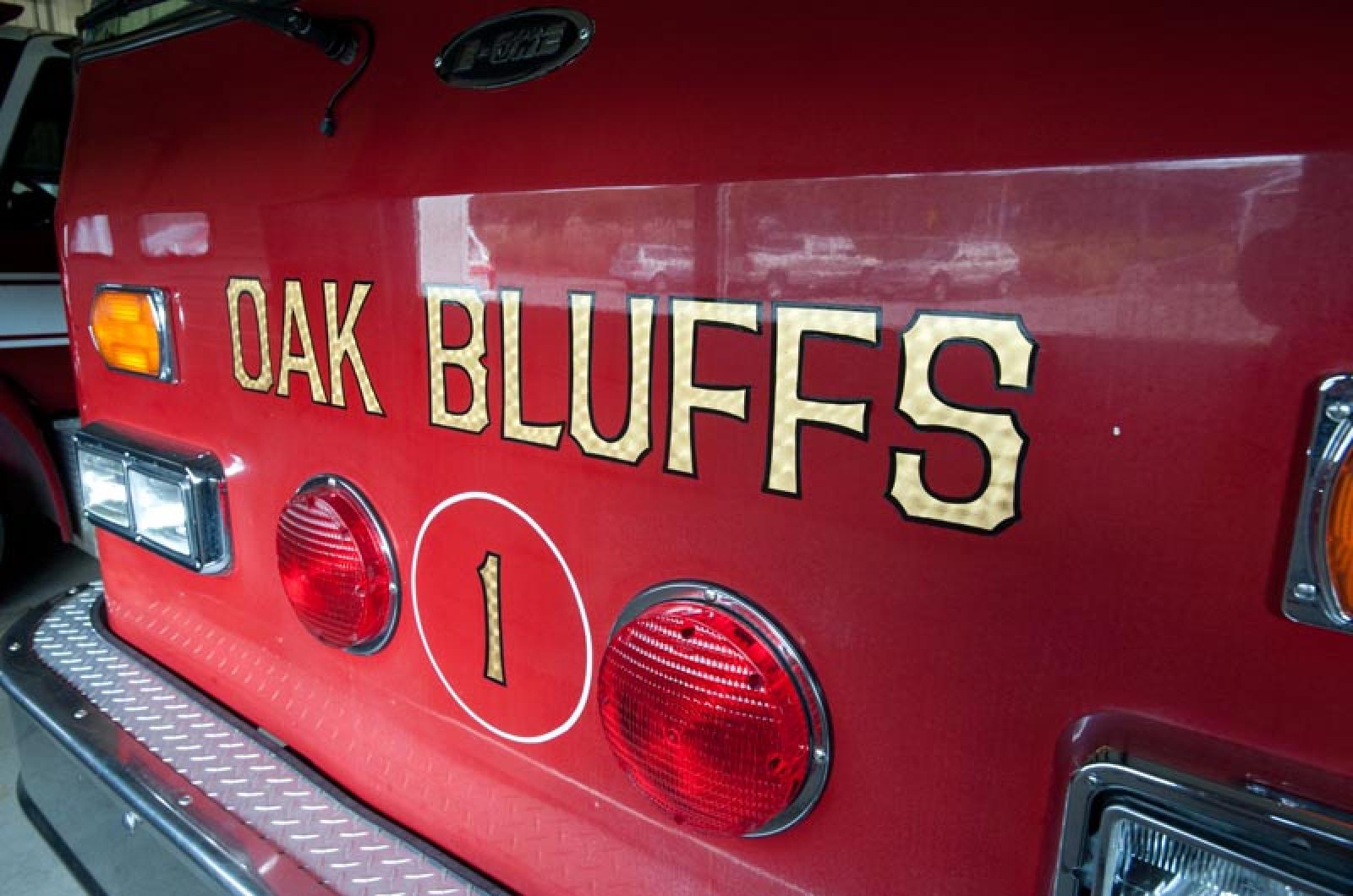In hiring and supervising members of his family, Oak Bluffs ambulance and fire chief John Rose broke conflict of interest rules, the state ethics commission said Monday. But the commission declined to fine Mr. Rose or call for a hearing, instead sending a letter explaining requirements of the law, which the commission said would benefit Mr. Rose and other employees in his situation.
According to a public letter dated March 16 and addressed to Mr. Rose, the five-member Massachusetts Ethics Commission voted in December to “find reasonable cause” to believe that Mr. Rose violated conflict of interest law by hiring and supervising four family members between 2009 and 2013 without the proper disclosures.
“Your participation as ambulance chief and fire chief in the hiring and supervision of your immediate family members as ambulance department and fire-EMS department employees created a conflict of interest between your public duties and your private family relationships,” commission executive director Karen L. Nober wrote in the letter.
The letter also states that Mr. Rose came into full compliance with the law in 2013, when he filed a written disclosure describing his involvement in the fire and ambulance careers of his brother, Manuel Rose, daughter, Amanda Rose and sisters Trulayna Rose and Krystle Rose.
Oak Bluffs selectmen signed off on the disclosure, and determined that Mr. Rose could supervise family members but must abstain from appointment or promotion procedures of immediate family members.
It was partly because of that determination, along with an earlier disclosure Mr. Rose made in 2011, that the ethics board opted not to bring the case to an adjudicatory hearing or to impose a fine.
Instead, they issued the public letter so that Mr. Rose “and other public employees in similar positions and circumstances will have a clearer understanding of, and ability to comply with, the conflict of interest law,” Ms. Nober wrote.
Reached Monday, Chief Rose said he was glad it was all out in the open.
“I feel great because I have nothing to hide,” he said. “I honestly am here for what is in the best interest of the town and the people we serve, plain and simple.”
According to the letter, Mr. Rose supervised and approved work schedules and payroll sheets for each of his four family members between 2009 to 2013. He also participated in hiring processes that led to the appointment of his sisters and daughter to paid positions with the ambulance service.
In materials that accompanied the 2013 disclosure, Mr. Rose said employment applications were reviewed by committee “to remove me from the process and assure transparency in both hiring and promotions.”
On Monday, he added that positions were advertised fairly.
“I wasn’t purposely giving my family members the jobs, when they applied and got the jobs they were the most qualified for the positions,” he said.
In 2011, Mr. Rose filed a disclosure with then-chairman of the board of selectmen Kathy Burton indicating his supervisory role over family members employed by the ambulance department. According to the ethics commission, that disclosure was deficient and was never brought to the attention of the full board of selectmen as the law requires.
Town administrator Robert L. Whritenour, who did not work at the town during the time, said there was “an incomplete awareness” of state ethics standards.
“In my view, the initial disclosure was intended to disclose the various relationships, but it didn’t have the detail that was necessary to specifically inform anyone of the specific nature of the conflicts,” Mr. Whritenour said.
In 2013, when Mr. Rose became the town fire chief, he worked with the town to file a more extensive disclosure.
“We gave it the sunshine it deserved, to look at it closely and address it,” Mr. Whritenour said.
Going forward, the chief’s involvement in employment matters regarding his family members will be limited. He will not handle disciplinary actions, employment reviews, promotions or appointments of family members unless the board of selectmen require it.
While it is ultimately the employee’s responsibility to comply with the law, the town is also responsible for setting up the structure that will enable him to comply, Mr. Whritenour said.
In the letter, the ethics commission also noted that in some areas of public service, like fire departments, there is a “strong family tradition” where members of the same family work together in the same type of employment.
Mr. Whritenour said this fact is compounded by the Island’s geographical isolation.






Comments (1)
Comments
Comment policy »